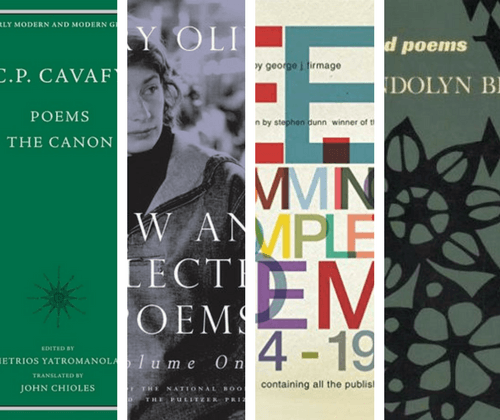
7 Poets Every Actor Needs to Know
A Note From Terry Knickerbocker on Language
Wordplay is part of an actor’s toolbox. When the actor can live-out a word by understanding what each word means through their actions, it creates vibrancy in a scene. Speaking poetry aloud can nurture good vocal habits, develop emotion, and set a range of tones for the actor. Paying attention to details in speech is essential in character work. When I think of advice for actors on nailing a good speech, I remember this quote from Sanford Meisner in his book On Acting:
“What’s that speech about? Don’t give a lecture. Tell us in your own words about a personal experience. It’s about going into a place and feeling isolated and locked out, but having a vision that somehow you belong there and helping through your own work, to open the doors, to make the place home. Proving that it was home all the time.”
It’s not about convincing the audience that you exist; it’s about believing the character exists within yourself. The audience will ultimately believe you because of your living out a full vision truthfully. When you feel at ease with this experience so does the audience. The duty of an actor is never to stop believing in your character. If you are bored, then your audience will also be bored. Don’t bore us with fake pretend, entice us with a richness of words and actions played out with honesty. Here is a list of some of my favorite poets:
Contributed with intelligence by staff writer Russell Sperberg
The Poems of Stanley Kunitz

There’s no other way to put it – Kunitz’s poems are human. (Not literally, of course.) His early work is witty and intellectual, but it’s his later work that’s not so much clever as it is wonderful. His rhythms, inspired by human breath, became more instinctual; his poems became capsules for the little, contained joys of life. His work speaks to something deep in your bones. They may seem restrained, but there’s a powerful swell just below the surface. Importance of subtext anyone?
The Poems of Constantin Cafavy

If you’ve never heard of Cafavy, you are forgiven. Even his native Greece didn’t think much of him until after his death in 1933. But now, his poetry is essential to Greek culture. His super-exacting language (notoriously hard to translate) often evokes classical Greek history to comment on modern life. Cafavy refused to formally publish his work, printing it himself to hand out for free. He was a true national poet concerned with place, history, and his fellow citizens and, like Meisner actors, knows the power of specificity.
The Poems of Gwendolyn Brooks

Gwendolyn Brooks was a trailblazer. Having already published 75 poems by the age of 16 (!), Brooks became enmeshed in the Chicago literary scene. Life in her South Side neighborhood inspired her to write Annie Allen, a book of poetry about a Black girl coming of age in Chicago. Annie Allen won the Pulitzer in 1950, making Brooks the first African-American to receive one. In a career spanning seven decades, Brooks used poetry to give voice to the African-American experience and is an important read for any artist.
The Poems of Mary Oliver

Some dismiss Mary Oliver’s poetry as sentimental nature fandom, but it’s so much more. Yes, she often writes about the natural world around us, but she does so with joy and amazement. Read her simple, elegant accounts of the world, and you’ll laugh, cry, or laugh and cry at the same time. Her poetry will make you feel connected to nature and humanity in a way you haven’t felt since you kinda did in that Intro to Yoga class your freshman year. Trust me, read Oliver during training and you will understand the importance of poetry.
The Poems of e.e. cummings

You may not be able to make sense of an e.e. cummings poem, but you’ll definitely feel something. And that was his goal. He repurposed language and grammar and gave words new meaning. Hell, his poems even look different from other poems. But underneath this weirdness is a bloody, beating heart. cummings often wrote about love and sex and rebirth – read his poems and you’ll know that language and love are one in the same.
The Works of Maya Angelou

If you only know Angelou because you had to read I Know Why The Caged Bird Sings in high school, boy are you missing out. Yes, she was a writer, but was also a musician, actor, director, activist, and public speaker; her filled-to-the-brim life is her greatest work of art. And, most inspiringly, she shows you how to survive anything with grace and faith.
The Poems of Emily Dickinson

Dickinson lived much of her life in seclusion, but that didn’t stop her from expertly capturing the mysteries of our world. Reading her brief, sharp poems is like wading into shallow water and then realizing it’s actually eight feet deep. Contemporaries dismissed her work as eccentric and sloppy, but there’s great depth and playfulness to her work. She was way ahead of her time, with her mysterious dashes and ironic, frisky words.
Want to learn even more?
Terry Knickerbocker Studio offers comprehensive Two-Year Conservatory rooted in the Meisner technique, in a state of the art facility in Brooklyn, New York.
Interview Today for the Fall Conservatory or the Summer Intensive
Fill out an Application Here
Call 718-801-8999